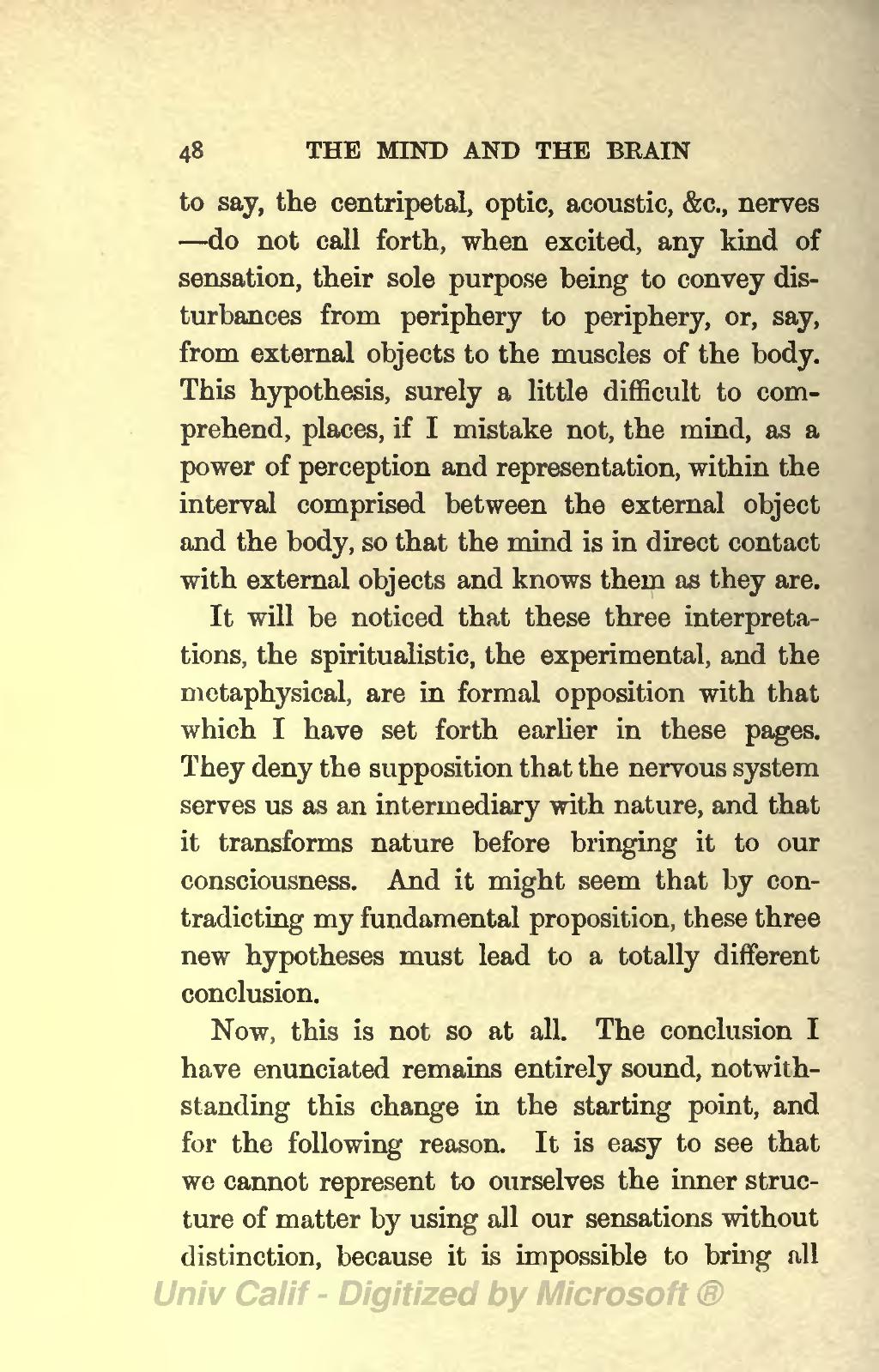to say, the centripetal, optic, acoustic, &c., nerves—do not call forth, when excited, any kind of sensation, their sole purpose being to convey disturbances from periphery to periphery, or, say, from external objects to the muscles of the body. This hypothesis, surely a little difficult to comprehend, places, if I mistake not, the mind, as a power of perception and representation, within the interval comprised between the external object and the body, so that the mind is in direct contact with external objects and knows them as they are.
It will be noticed that these three interpretations, the spiritualistic, the experimental, and the metaphysical, are in formal opposition with that which I have set forth earlier in these pages. They deny the supposition that the nervous system serves us as an intermediary with nature, and that it transforms nature before bringing it to our consciousness. And it might seem that by contradicting my fundamental proposition, these three new hypotheses must lead to a totally different conclusion.
Now, this is not so at all. The conclusion I have enunciated remains entirely sound, notwithstanding this change in the starting point, and for the following reason. It is easy to see that we cannot represent to ourselves the inner structure of matter by using all our sensations without distinction, because it is impossible to bring all
